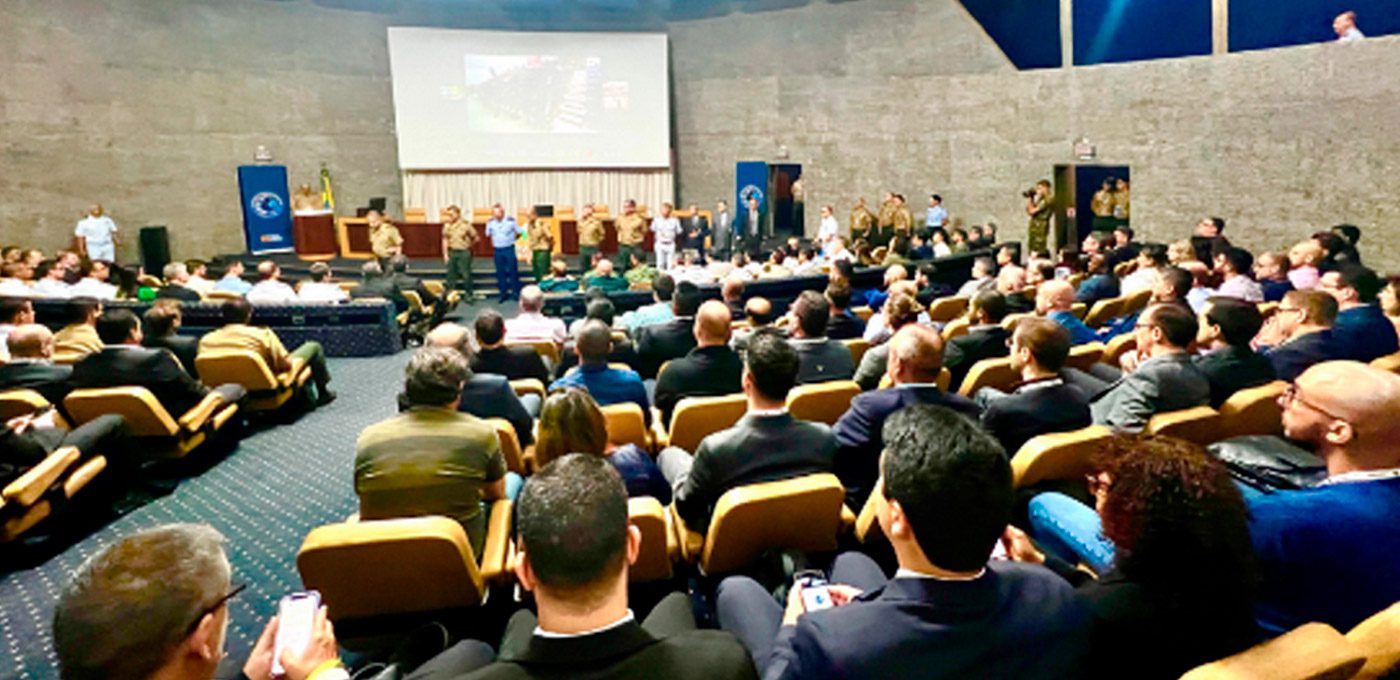Exercise Cyber Guardian 5.0 takes place from October 2 to 6 and promotes integration between military and civilians
By Marine Ranger (RM2-T) João Stilben – Brasília, DF
At a time when the use of information and communication technologies is growing exponentially in the most diverse human activities, conflicts are marked not only by pitched battles, but also by attacks in virtual space. In this context, Brazil is holding Exercise Cyber Guardian 5.0, the largest cyber defense simulation in the Southern Hemisphere, which began on Monday (2) and runs until October 6, at the Higher Defense School (ESD) in Brasília (DF).
Organized by the Cyber Defence Command (ComDCiber) – a group subordinate to the Brazilian Army (EB) and made up of military personnel from the Brazilian Navy (MB) and the Brazilian Air Force (FAB) – the exercise promotes the integration of the Armed Forces with the government, the private sector and academia, simulating a realistic environment of attack, defence and virtual protection of critical energy, water, finance, nuclear and telecommunications structures.
More than 1,100 people and 150 organizations are taking part in the event, including national and international agencies and companies from these important infrastructures, as well as partner bodies and academic institutions, providing the integration of players in order to increase Brazil’s cyber resilience.
During the Exercise, held simultaneously in Brasilia and São Paulo, around 1,100 Simulated Cyber Problems will be presented, separated into levels of complexity. In this case, the participants act in an integrated and cooperative manner, defending a computer network by means of a cyber simulator, which will be attacked online.
One of the distinguishing features of this edition is the creation of a Crisis Office, represented by the Office of Institutional Security (GSI) of the Presidency of the Republic and other public and private bodies, with the aim of training the Brazilian state’s responses to situations that go beyond the remit of a single ministry. According to the GSI’s Secretary for Monitoring and Management of Strategic Affairs, Rear Admiral Francisco André Barros Conde, “this is inter-ministerial work, in which advice is provided so that the Brazilian state can respond promptly to a possible crisis that may arise,” he explained.
The Head of the Strategic Management Center of the Cyber Defense Command, Rear Admiral Marco Antônio Linhares Soares, pointed out that, in addition to the exercises planned and carried out at the national level, the Ibero-American Cyber Defense Forum, which brings together 13 countries, is taking place in parallel to the event.
“This is so that these countries can replicate the activities in their respective defense sectors,” added the Admiral. According to him, the Brazilian Navy has invested in this field of contemporary warfare by preparing its personnel, who are always updated in Cyber Defense courses, increasing its capacity to protect maritime assets and facilities at the digital level.
During the initial presentation of the exercise, which took place today (1st) in the ESD auditorium, cyber warfare was highlighted as one of the real threats to the Brazilian state, which also include espionage, external interference, actions against national sovereignty, terrorism, sabotage, organized crime, among others.
The Cyber Defence Commander, Lieutenant General Alan Denilson Lima Costa, said that the exercises will include dynamics such as “constructive simulation”, in which critical infrastructure organizations participate with their crisis offices, staffed by management, legal, media and information technology personnel, seeking to respond to simulated cyber problems presented by the coordination.
Another activity is a virtual simulation, where participants are placed in a situation where they have to defend the infrastructure from attacks launched by a red team from the event organizers. “This year we will have a simulator, for example, that represents an air defense system, and the blue team has to defend that infrastructure,” added General Alan.
Navy News Agency
